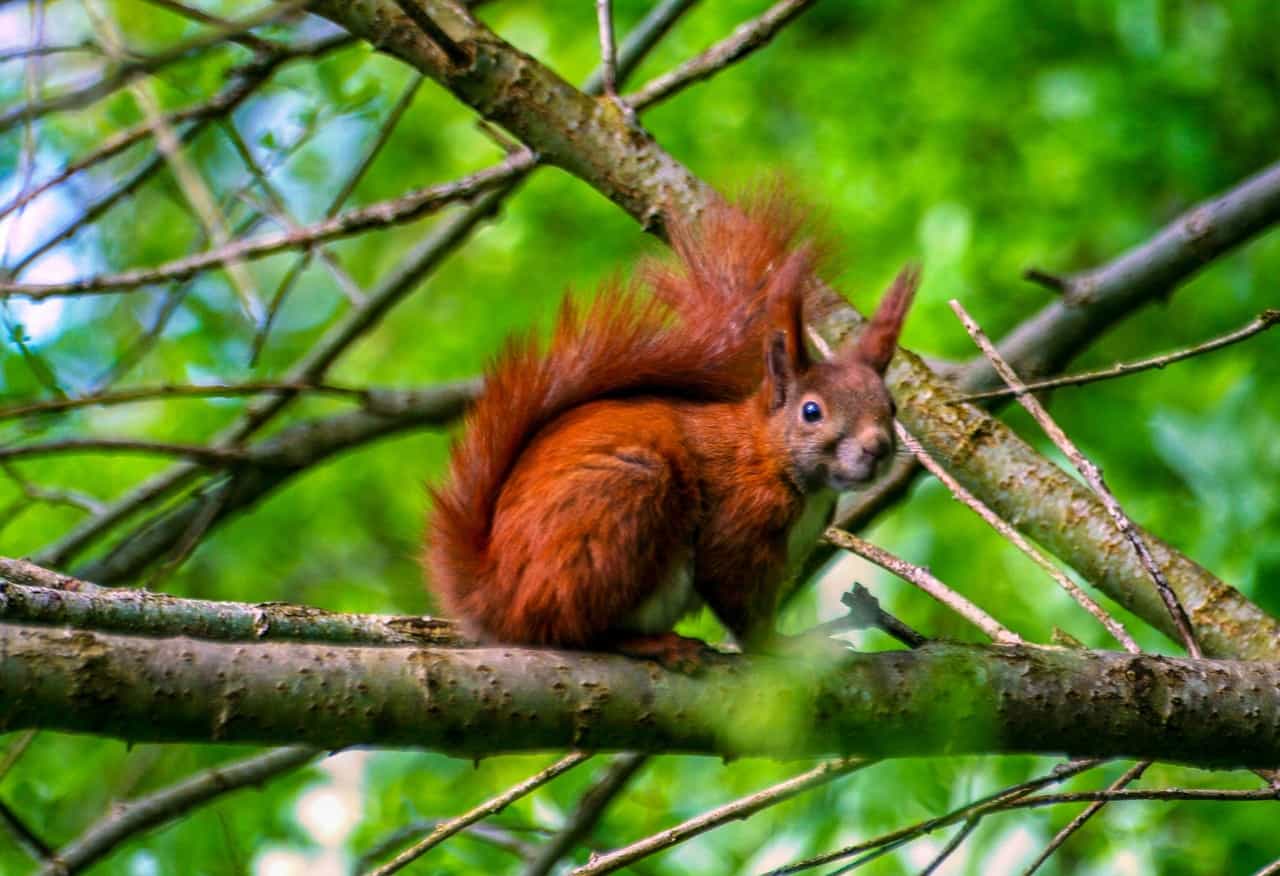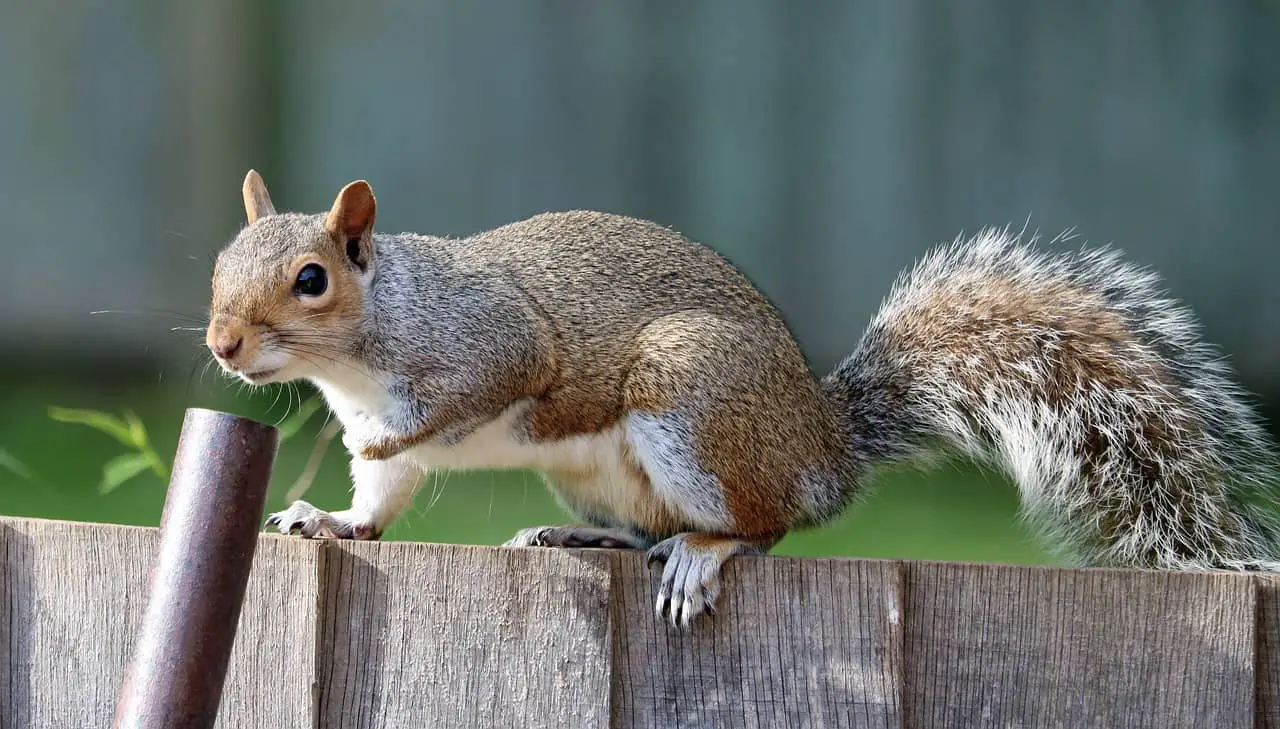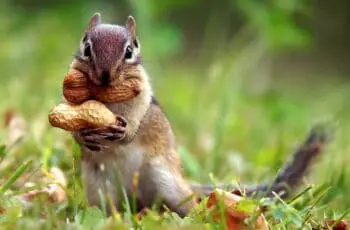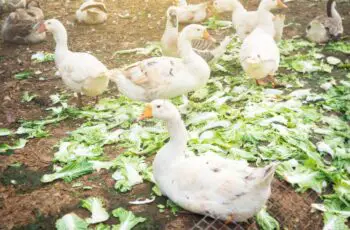Do you have a squirrel in your garden or one that visits your bird feeder on a frequent basis?
Squirrels can be found all throughout North America, and much remains to be learned about them.
In this blog post, we’ll look at the average lifespan of squirrels both in the wild and in captivity.
We’ll also look at some of the variables that influence a squirrel’s longevity as well as some of the hazards they’re exposed to.
So, how long do squirrels live on average? Continue reading to find out!
How Long Do Squirrels Live?
There are several factors that affect a squirrel’s lifespan, the most prominent being if they live in the wild or captivity.
Squirrels typically have shorter lives in nature than under human care.
The average lifetime for a wild squirrel is 5-10 years while some captive ones may live up to 16 years old.
One of the main reasons behind this difference is exposure to potential predators and hazards; both danger and stress shorten wild creatures’ lifespans but are virtually nonexistent where people house them.
Squirrel Life Cycle
There are 3 stages in the squirrel life cycle and each has its characteristics.
Newborns
Baby squirrels are born blind and deaf, but within a few days, they begin to grow fur. Their eyes open between four and six weeks old, at which point they also start investigating their surroundings under the watch of an adult. They become completely independent by three months old.
Juveniles
Due to the difficulties they face, such as establishing a nest and finding enough food, many baby squirrels do not survive their first year. Squirrels that live in the wild have a lifespan of up to ten years if they can overcome these hurdles.
Adults
Squirrels are generally solitary creatures as adults. They spend most of their time foraging for food or constructing nests, and they frequently store excess food for consumption during hard times. Male squirrels will get into fights over the attention of females during the mating season. Once a partner has been identified, the pair will usually stay together until the next breeding season. The parents will return to being ready to start another cycle once they have raised a family of youngsters.
Factors Affecting a Squirrel’s Life Span
- A squirrel’s lifespan is greatly affected by many different factors.
Male or female
On average, males have shorter lives than females. Scientists believe this is because they often participate in riskier activities to establish dominance over territory against other males.
Diet
What a squirrel eats not only affects their lifespan but also the quality of their life. A diet with plenty of nuts and seeds leads to a longer, higher-quality life than one full of junk food.
Common diseases and parasites
Furthermore, squirrels can become ill or infested with parasites, which may rapidly kill them. Rabies and mange are two examples of common illnesses that affect squirrels.
Tooth loss
Additionally, tooth loss is a serious problem for squirrels because it can make it difficult or even impossible for them to eat. Many squirrels that lose their teeth starve to death as a result.
Loss of vision
Also, sight loss can also have a negative impact on squirrel health, as it makes them more vulnerable to predators. Without the ability to see potential threats, they may be killed or hurt.
Predators That Attack Squirrels
Squirrels are hunted by a variety of predators in the wild, including raptors, snakes, and other animals. Humans, on the other hand, are their most common adversary. Squirrels are unintentionally killed by being struck by automobiles or poisoned with rat poison.
Although a squirrel’s lifespan can be determined by many different things, some have been known to live up to 20 years.
Related: Why Is Squirrel Not Moving But Breathing? (Solution)
The Lifespan Of Squirrels – Wild vs Captivity
If you reside in North America, it’s likely that you’ve seen at least one squirrel. These creatures build their homes in both rural and city locations, and while some people think of them as pests, others see them as potential pets.
An integral point to make is that captive squirrels have a much higher life expectancy than those living wild.
The typical lifespan of a wild squirrel is only five to ten years due to dangers such as predators, disease, and extreme weather conditions.
In contrast, if they are looked after properly, squirrels in captivity can live up to sixteen years.
The explanation for this discrepancy is that captive squirrels don’t encounter the same risks as ones living in the wild; because of this, they usually have much longer and healthier lifespans.
Life Expectancy Of Squirrels Across Species
Squirrels are one of the most common animals in North America, and they come in a variety of shapes, sizes, and life spans.
American Red Squirrel Lifespan

American red squirrels can be found throughout the United States in the forests of Alaska, the east coast north of Georgia, and the Rocky Mountains.
The lifespan of American red squirrels is up to 5 years in the wild.
In captivity, however, they can live for up to 8 years.
Eurasian Red Squirrel Lifespan
The Eurasian red squirrel is native to Eurasia and can be found in forests. They make their nests in trees like the Boreal pine tree and the Siberian pine tree, among others.
They have a lifespan of up to 6-7 years in the wild but can live for up to 15 years in captivity.
Eastern Fox Squirrel Lifespan
The Eastern fox squirrel is the largest species of squirrel in North America.
They have a lifespan of up to 8-12 years in the wild.
In captivity, however, they can live for up to 18 years.
Southern Flying Squirrel Lifespan
The southern flying squirrel is the smallest species of flying squirrel in the world.
They have a lifespan of up to 3-5 years in the wild.
In captivity, however, they can live for up to 10 years.
Eastern Grey Squirrel Lifespan

The eastern grey squirrel is the most common species of squirrel in the North.
They have a lifespan of up to 12 years in the wild.
In captivity, however, they can live for up to 20 years.
Western Grey Squirrel Lifespan
The western grey squirrel is a tree squirrel found along the western coast of the United States and Mexico.
They have a lifespan of up to 7-8 years in the wild.
In captivity, however, they can live for up to 20 years.
Black Squirrel Lifespan
A black squirrel is a melanistic form of the eastern grey squirrel.
They have a lifespan of up to 6 years in the wild.
In captivity, however, they can live for up to 18 years.
Ground Squirrel Lifespan
The ground squirrel generally lives on or in the ground, rather than in trees.
They have a lifespan of up to 2-4 years in the wild.
In captivity, however, they can live for up to 7 years.
Why Do So Many Squirrels Die As Babies?
Every year, thousands of baby squirrels are born in the wild. Nonetheless, only a small number make it to adulthood. There is a high mortality rate for a variety of reasons.
Predators
Hawks, owls, raccoons, foxes, and bobcats prey on squirrels which significantly contributes to the depletion of young squirrel populations.
Diseases
Furthermore, squirrels are also often susceptible to parasites and diseases. These can kill them rapidly if not treated in time. Some of the diseases they might carry include rabies which is highly contagious and often fatal.
Weather
Squirrels are also exposed to harsh weather conditions. Squirrels are susceptible to hypothermia during cold weather snaps and can perish rapidly if they aren’t kept cool.
Baby squirrels born in the spring and summer are particularly prone to these circumstances because their parents haven’t yet given them their thick fur coats.
As a result, it’s critical for squirrel parents to look after their youngsters and assist them in finding refuge during cold spells.
Starvation
Many young squirrels die because they cannot find enough food, which is especially distressing during winter. The diet of a squirrel includes both plant and animal substances; however, most of their consumption comes from nuts, seeds, and fruit.
If these items are scarce resources at any given time, baby squirrels will not survive for very long without them.
With all the risks involved in infancy, it’s no wonder that so few newborn squirrels live to see their first birthday.
Conclusion
Squirrels are creatures that many of us find fascinating, and they can teach us a lot. Depending on the species, squirrels have different life expectancies in the wild versus in captivity.
In general, however, captive squirrels live much longer than their wild counterparts due to dangers like predation or bad weather conditions.
Even though they don’t live very long, squirrels can still have a big effect on their ecosystems.
They help to spread seeds around and keep forests healthy. So the next time you see one, take a minute to think about everything they do for us.



